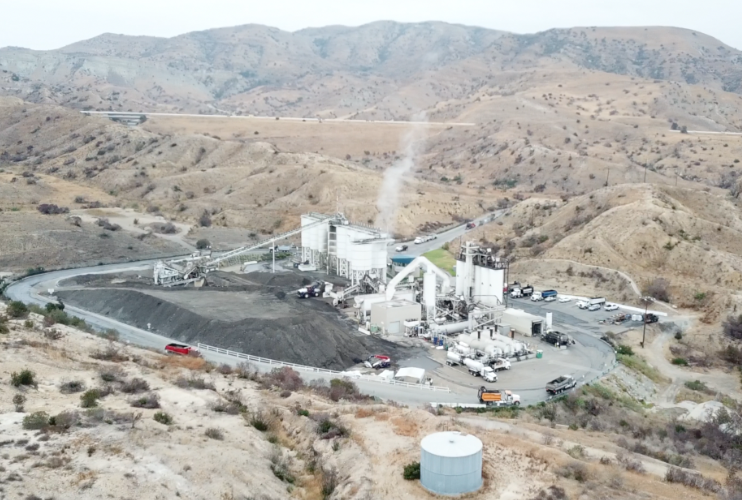The city of Irvine has announced it has put into motion a legal framework that would work to relocate the All American Asphalt facility outside of Irvine. The asphalt facility, which is the city’s largest producer of volatile organic compounds, has been at the center of community complaints for years, as Irvine residents fear noxious odors associated with asphalt production are a threat to public health.
Despite being discussed in a closed session prior to the public City Council meeting on Tuesday, Feb. 22, Irvine Mayor Farrah Khan addressed the topic, adding that the council would order staff to pursue a settlement with the facility.
“In closed session tonight, City Council directed staff to pursue a settlement with the city’s lawsuit against All American Asphalt. The settlement would require the relocation of All American Asphalt to a different location outside of Irvine and terminate asphalt storage and operations at the existing site,” Khan said. “Until the relocation occurs, the City Council directed that All American Asphalt implement a series of mitigation measures to monitor and limit emissions and odors from existing onsite operations and from trucks traveling to and from the site. Finally, the City Council has directed the staff cautiously and expeditiously to pursue these settlement terms with All American Asphalt.”
Khan added that more details of the settlement would follow in the coming weeks.
The subject of regulation of the plant has been a topic of conversation for many North Irvine residents for years. In terms of action, the city has taken steps to address concerns, restricting truck routes, mandating trucks be covered and imposing fines.
Yet the odors continue, according to Kim Konte, a North Irvine resident and founder of Non-Toxic Neighborhoods who fears Irvine is facing a public health crisis. Konte has spoken with Irvine Weekly several times on the topic of All American Asphalt, adding that she feels that her life has become the beginning of a movie about an ecological disaster.
In a text message with Irvine Weekly on Wednesday, Feb. 23, Konte said the move by the city to relocate All American Asphalt is a step in the right direction. However, Konte questioned the timeline and asked for an emergency injunction.
“The optics of Mayor Khan’s announcement is that the city’s finally taking action to get to the right side of this public health crisis; unfortunately, Khan failed to include a timeline. Khan’s announcement is three years too late. Anything short of an emergency injunction is simply a delaying tactic,” she wrote. “Our children can’t continue to be exposed to the largest and non-compliant pollutant of group one carcinogens in the city of Irvine. This exposure is cumulative and irreversible. The mayor needs to take swift action and, at the very least, bring forward an emergency injunction against AAA to cease production immediately until AAA is compliant! What is the purpose of the Clean Air Act if it’s not enforced? Access to air that’s safe for our children to breathe should not be a luxury; it should be a basic human right.”
Some residents say they were unaware All American Asphalt existed, prior to purchasing property. Others say their children constantly complain of foul odors, even when outside during school.
In 2019, the plant was the subject of more than 800 complaints of odor from residents, who also voiced frustration over the difficulty of reporting odor events to the Air Quality Management District. AQMD requires complaints from three different households, within one hour, to send AQMD personnel to investigate odor complaints after hours.
Specifically, residents say, the foul odor is nauseating, causes headaches and resembles an “asphalt and burnt rubber-type” of odor. Residents say the odor is most noticeable between the hours of midnight and 7:00 a.m, which is, “after-hours” for SCAQMD.
Last year, in December, Senator Dave Min spoke to Irvine Weekly after the city of Irvine requested his assistance in creating stricter legislation for the asphalt production industry. Min, alternatively, explained that those changes would create far more disruptions than foul odor.
“The law is the law. As I’ve said, for us to change that law would require us to look pretty deeply at some of these issues around what is the right concentration, and it would have to be something of uniform applicability,” Min said in an interview with Irvine Weekly. “It would be a long time coming, honestly — but we couldn’t just target this plant.”
This is a developing story.
Advertising disclosure: We may receive compensation for some of the links in our stories. Thank you for supporting Irvine Weekly and our advertisers.

